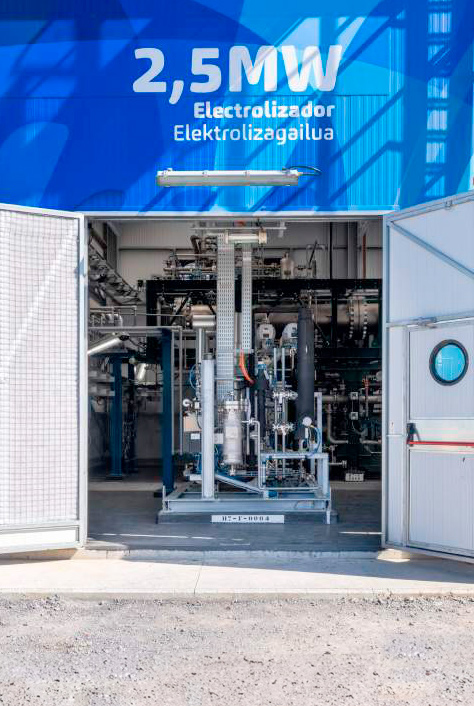It is essential to have a clear and favorable regulatory framework that incentivizes investment in hydrogen technologies. This includes the implementation of support policies, such as subsidies and tax exemptions. Moreover, collaboration between different levels of government is crucial (national, autonomous, and local) to coordinate efforts and maximize the impact of initiatives.
In the business environment, companies must commit to innovation and the adoption of hydrogen technologies in their production processes. Repsol, for example, is already leading in this field with renewable hydrogen projects that seek to decarbonize its processes and products. Public-private collaboration is also essential to develop appropriate infrastructures, such as hydrogen pipelines and hydrogen service stations.
We are facing the multifaceted challenge of making the most of the entire potential of hydrogen energy, some of the major challenges for the implementation of renewable hydrogen are:
- Production cost: The cost of hydrogen production, driven by the CAPEX of electrolyzers and electricity prices, is very high, which makes the economic feasibility without subsidies difficult. For the creation of the market, boost in demand, and investment in technology, European and national funds are a critical component, just like they are to develop any type of technology that is in an early state.
- Regulatory complexity: It is necessary to avoid excessive complexity in the definition, implementation, and monitoring of this type of energy, and focus on expanding the market in a pragmatic manner.
- Incentives and demand: Incentives are needed for the launch of new production projects and mechanisms that stimulate demand, fostering the creation of a liquid and competitive market. It is fundamental to promote the diversification of uses and demand: hydrogen is the start of new value chains beyond its direct use in industry, in other words, as energy storage, as a raw material in the production of synthetic fuels, or as a direct fuel in mobility.
- Legal and administrative framework: It is essential to establish a stable and favorable legal and administrative framework to decarbonization, which creates long-term certainty and attracts investors.













